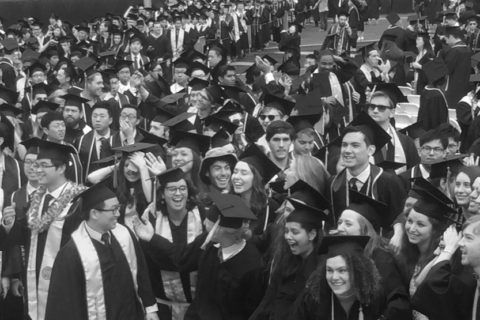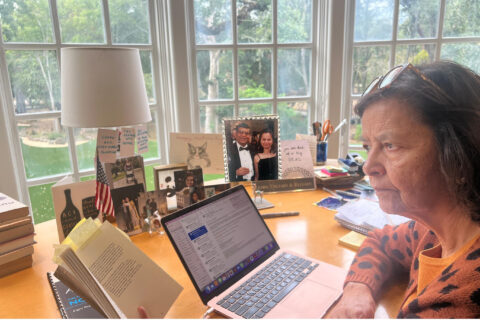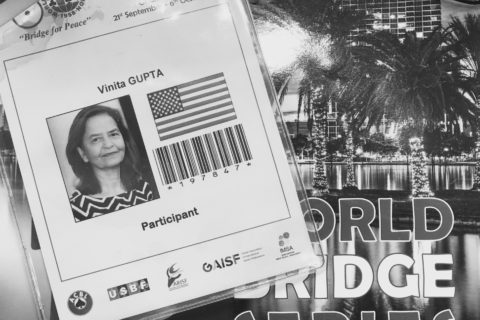
Life experiences have taught me how hard it is to succeed and to uncover even the underpinnings of expressions. Our accomplishments and achievements start taking on new definitions when we have a few under our belt. Then we discover how there is no destination.
Olympic champion Eliud Kipchoge from Kenya, who broke the world marathon record, and won 10 marathons between 2014 and 2019 compared winning to climbing a tree: “you step onto one branch and then the next.”
Compelling messages like “pursue your passion” are often heard in commencement speeches. But what is passion? How do we find it? Such rhetorics, therefore, can have an opposite and unintended effect— instead of lifting you up, they confuse you.
Captivating ideas require deeper examination and scrutiny before they can be embraced.
Teachings come our way through parents, scholars, and coaches. But few of them change our life trajectories. The way to internalize and embrace them is usually too difficult for us to even visualize their usefulness.
My journey began with my upbringing in Indian culture, continued in America as a business leader, and now as an intensely competitive bridge player who competes in tournaments around the world. Western culture has had a profound impact on me.
Two ideas that I have picked on this journey, have shaped me and changed my trajectory. The first is a teaching from the 3000-year-old Hindu epic, Bhagavad Gita: “focus on karm (action) and not results”. The second got infused in me by my exposure to American culture: “being authentic.”
The Gita was narrated by the god Krishna to the warrior Arjun, to encourage him to fight a war against his own cousins as best as he could and without worrying about killing his kin. Almost every Hindu born in India has repeatedly been told not to worry about results. The Gita has many other worthy teachings.
Since childhood, this lesson was ingrained in me but has continued to evolve. It is less stressful when the focus is shifted from success to action. While playing in the toughest bridge competitions I would discover, on my own, a new focal point: learning from competitions. The moments of learning came as flashes of joy which relaxed my brain and made me mentally sharper during the game. Winning a bridge tournament is almost as difficult as getting a doctorate in astrophysics.
My two major endeavors in the US have been starting and running a technology company for 20 years, and playing high-level bridge for more than 10 (so far). Both are immensely competitive. I often think of the differences between excelling in sports and running a successful business. For both, the burning desire to win is necessary, but not sufficient. A focus away from success helped me manage my stress. But to rally our team or the people we work with, we have to build trust so that they can also contribute to new ideas without fear. No one person has all the answers.
When I noticed the authenticity of the Americans in Silicon Valley, I started emulating it.
Steve Kerr, the revered coach of the Golden State Warriors basketball team, gave a talk at the Haas School of Business at UC Berkeley in which he emphasized authenticity in almost spiritual terms. Fifty years back when I came to this country, I would have never understood what Kerr was talking about.
Early in my career, I noticed how Americans are more candid in their interactions and less hypocritical. Although I had been raised to be honest, honesty seemed to have a different meaning in the United States.
At first, I embraced integrity, acting with honest intent. Gradually I noticed how people responded to my integrity by sharing their weaknesses, and in the process revealing their vulnerability. I started experimenting with that too. But authenticity goes even beyond.
Authenticity entails revealing internal struggles and fears, even when doing so, may undermine our own social or professional stature. Instead, it had the opposite effect. I discovered that it disarms our rivals and puts us on a stronger footing. Genuineness established greater trust and engagement with others, making the process enjoyable. Authenticity simplified my life dramatically. It brought my acceptance into Western culture and made my professional journey smoother.
A study by Brian Goldman and Michael Kernis concluded that being authentic builds “knowledge of and trust in one’s own motives, emotions, preferences, and abilities.” In other words, it pays off big time.
Authenticity points inwards as much as outwards. It examines what we truly care about, what we value, and then how we project ourselves comes out organically.
Lastly, I would state, embracing being authentic with greater clarity is an ongoing process, another journey without a destination.
My Hindu upbringing gave me a valuable tool for when the going gets tough; authenticity has added a brand new dimension to, how to engage in life.
Perhaps Silicon Valley’s ingenuity is its authenticity, and how immigrants like me tend to assimilate it. It has shaped me as an entrepreneur, as a bridge player, and in my endeavor to be an effective thinker and writer, like those I admire: the legendary novelist Leo Tolstoy and the journalist David Brooks.
”Caught up in a rat race, playing in the devil’s game
Living in the fast lane, and I’m burning the flame” .. Impellitteri
It feels that way at times, but then I remind myself that life is a pursuit.








Vijay Gupta
I have also been a big follower of the Bhagavad Gita’s message (verse 2:47): Focus on the action; do not get attached to the results.
I used to think that this type of philosophy is rather unique to the Indian or Eastern traditions. But recently I came across an old quote by Oscar Wilde which conveys a similar message: "There are only two tragedies in life: one is not getting what one wants, and the other is getting it."
So the tragedy is not in the action (i.e., pursuit of something) but in the results, or perhaps attachment to results (i.e., getting or not getting what one wants). Can we avoid this "tragedy of results?" Perhaps.
Stop seeking a destination in life (there isn’t really one). Focus on simple pursuits that have no clear end goals. Such as helping others grow, learning a new language, or improving one’s health through diet and lifestyle. Better an ounce of joy every day than a pound of joy (or sorrow) every year.
Sreedhar
I will never ever want to miss your monthly articles even at age 86! Look forward to the next one.
I would love you to be associated with Shanti Bhavan School of Bangalore. May I write to you about Shanti Bhavan?
Rajiv Tiwary
Vinita, Wonderful article. I love it
Sanjiv Mittu
So well articulated and thoughtful, Vinita! You put a nice effort in differentiating the two most important things in life which a normal human being is always debating on. (to focus just on karma, not on the end results and how to fight with our internal fears and struggles). Once you learn how to fight (antar-dwandh) or compete, the authenticity and success follows.
I enjoy reading your posts and always look forward to it. Be blessed!
Ced
Focus on action and not on result is the thing I am telling myself while playing bridge. It is a good rule and allow the stress to release (a bit ;)). Nice article !
Chandru Bhambhra
Namaste Vinita Ji
I am sure, every Hindu would love your comment,” Two ideas that I have picked on this journey, have shaped me and changed my trajectory. The first is a teaching from the 3000-year-old Hindu epic, Bhagavad Gita: “focus on karm (action) and not results”. The second got infused in me by my exposure to American culture: “being authentic.”. I really loved it 👌🙏.
Hemant Lall
Eureka, Vinita! After spending 21 years in India and 50 in USA, I realize I am the beneficiary of two cultures: Pursue excellence irrespective of results (India); be authentic, don’t be afraid to expose your vulnerabilities, irrespective of how you are perceived (USA). Leads to a less stressful life.
Hemant